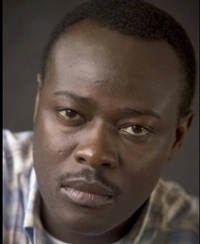In the late 1970s, twin brothers LaMamo and Mamo Lamang dream of leaving their Nigerian village to find fame and fortune. When they're 16, LaMamo runs away and joins various rebel factions fighting in West Africa, while his sickly brother, Mamo, stays behind with their belligerent father (their mother died in childbirth) and becomes a brilliant student. LaMamo's occasional letters let Mamo live vicariously but, more importantly, lets Habila (Waiting for an Angel
) reinforce his work's central message—that the biographies of ordinary individuals provide the real stuff of history. As Mamo becomes the history teacher at a local school, LaMamo actually lives history, meeting Charles Taylor and witnessing the anarchic chaos of West Africa in the 1980s and '90s. Mamo embarks on a career as a chronicler of "biographical history" (modeled on Plutarch's Parallel Lives
), beginning with a history of his village and his culture. Like his wayward brother, Mamo witnesses events that force him to examine his conscience. Habila fleshes out the novel with memorable secondary characters—a thuggish cousin, a damaged idealist love interest, an especially Machiavellian bureaucrat. The fresh, brilliant result contrasts cultural traditions with contemporary bureaucracy and reimagines a country through the ordinary and extraordinary experiences of its citizens. (Feb.)


